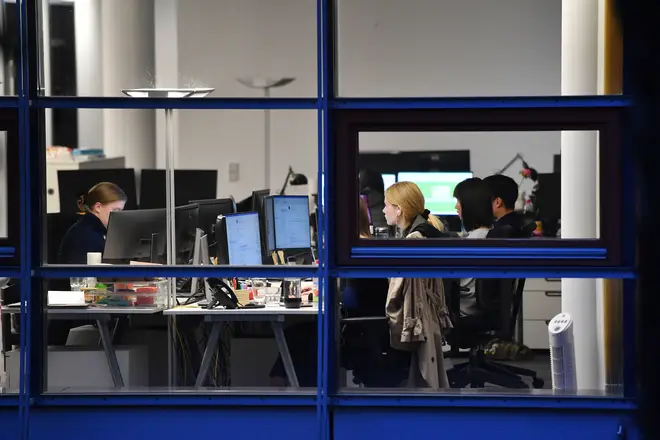
Rachel Johnson 7pm - 10pm
29 October 2019, 16:53

Progress on narrowing the gender pay gap is "dismally slow" as women over 50 face a pay disparity of more than 15 per cent between them and their male counterparts.
The gender pay gap for full-time workers in the UK has increased slightly to 8.9 per cent, the Office for National Statistics has said.
The new figure compares with 8.6 per cent last year, which was the lowest since records began in 1997, when it stood at 17.4 per cent.
For workers aged 40 to 49, the current gap was 11.4 per cent - having decreased substantially since 1997 when it was 24 per cent.
But for those aged 50 and over, the disparity is more than 15 per cent "and is not declining strongly over time", the ONS said.
The report said the difference is due to women over the age 40 being “more likely” to work in lower-paid jobs and are less likely to work as managers, compared to younger women.

ONS statistician Roger Smith said the gender pay gap increase was not “statistically significant”, adding it is “too early to say” if it marks a change in trend.
He said: “We also saw an increase in 2013 followed by a return to downward trend in subsequent years. However, the downward trend is a slow one regardless.”
Speaking about the latest figures, TUC general secretary Frances O’Grady said it would take “decades” to close the gender pay gap at the current rate.
She said: “Government must pick up the pace. It’s clear that publishing gender pay gaps isn’t enough on its own.
“Companies must also be legally required to explain how they’ll close them."
For age groups under 40, the full-time gender pay gap is now close to zero.
— Office for National Statistics (@ONS) October 29, 2019
By contrast, among the 50-59 and 60+ year-olds the gender pay gap is over 15% https://t.co/O0htK2ojNz pic.twitter.com/qW1hxnIzKf
Sam Smethers, chief executive of the Fawcett Society, said: “Progress to close the gender pay gap is dismally slow and at this rate it will take 60 years to eradicate it.
“Too many women are trapped in low paid part-time work or locked out of non-traditional sectors while others experience pay or pregnancy discrimination.”
The gender pay gap is calculated as how much less average hourly earnings are for women than average hourly earnings for men, in percentage terms.
It is a measure across all jobs in the UK, not of the difference in pay between men and women for doing the same job.